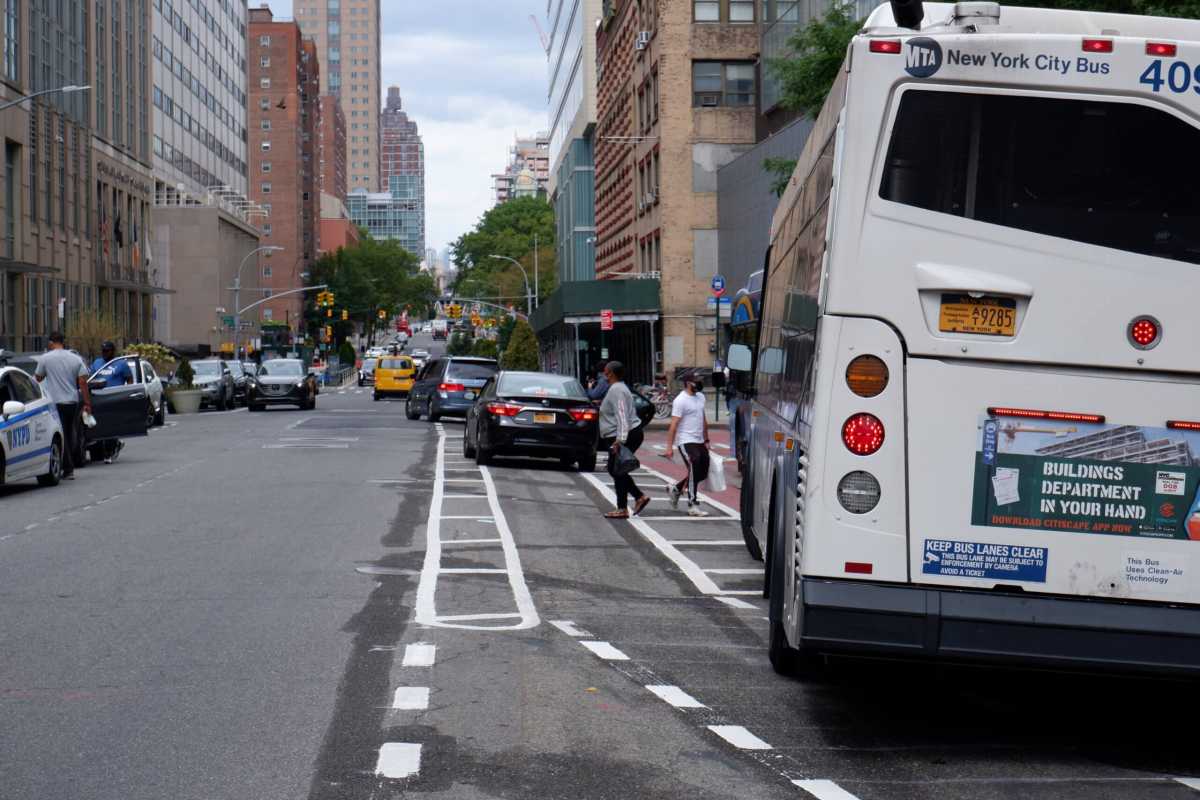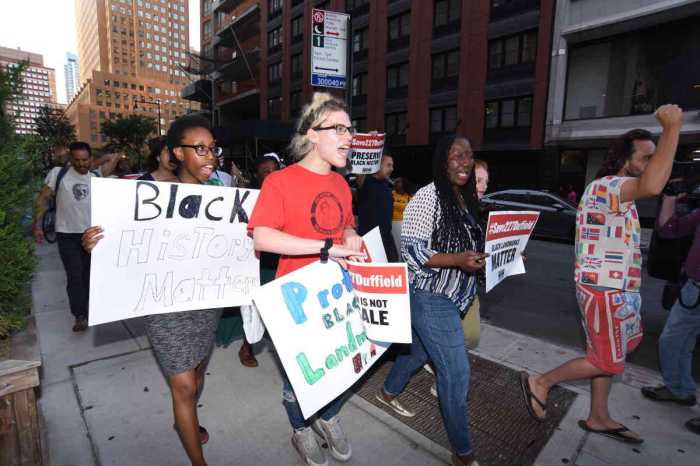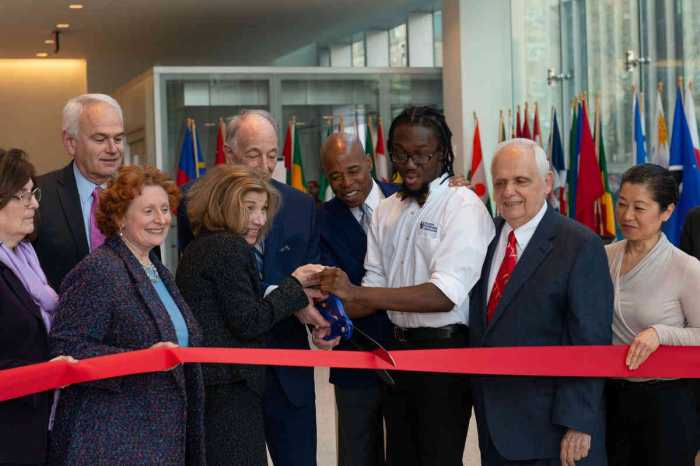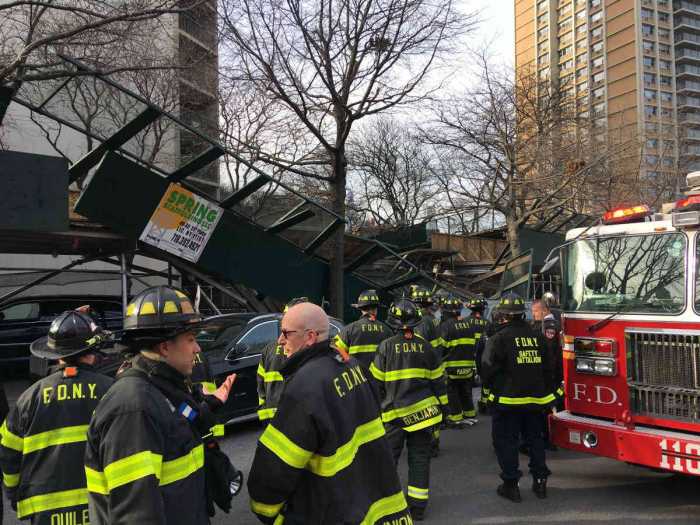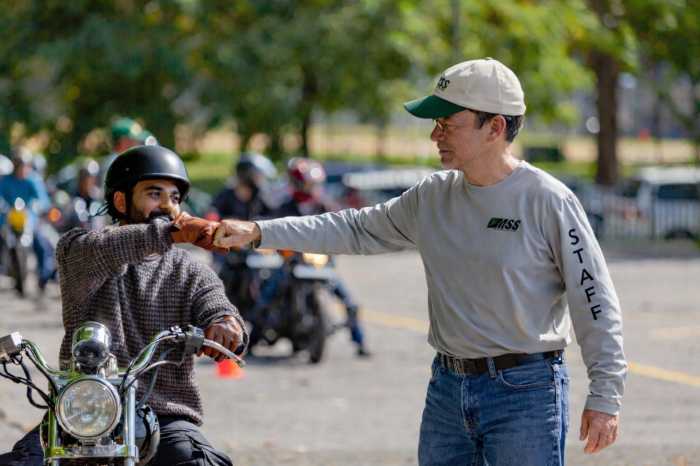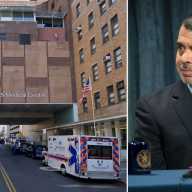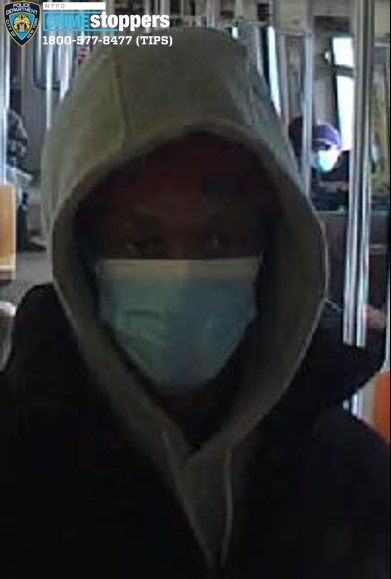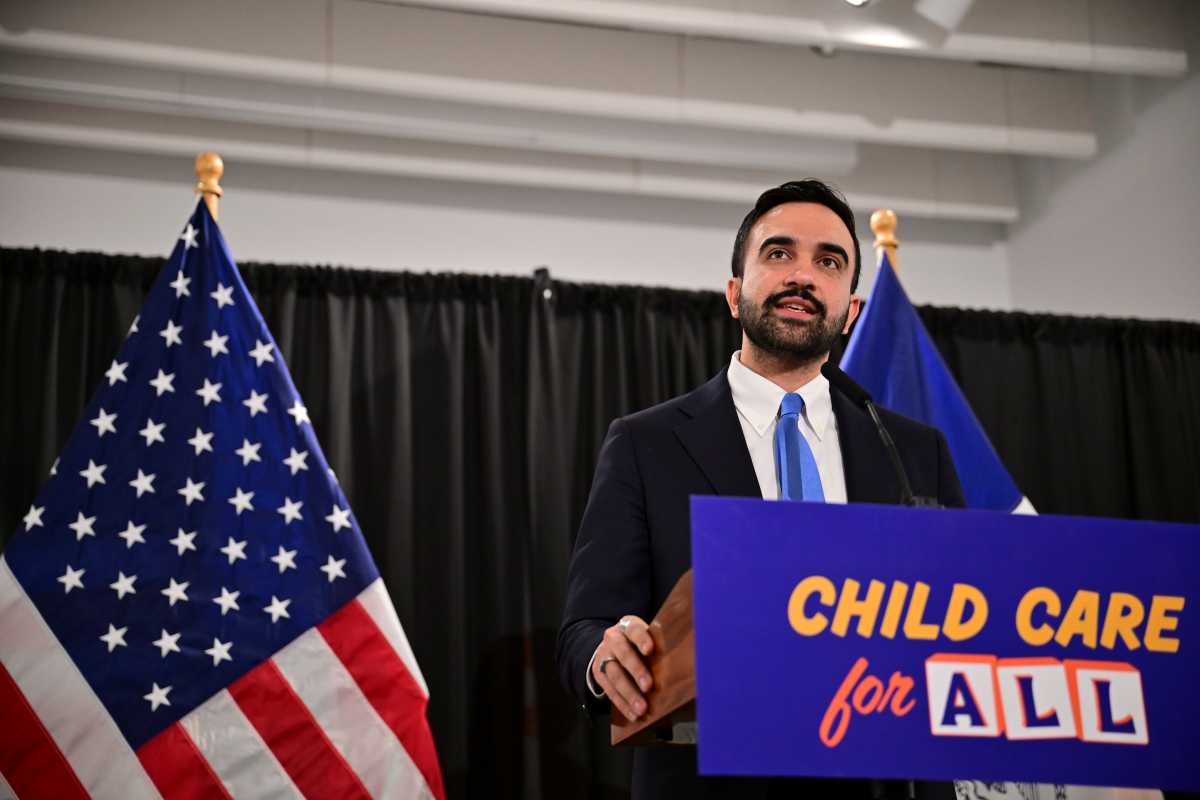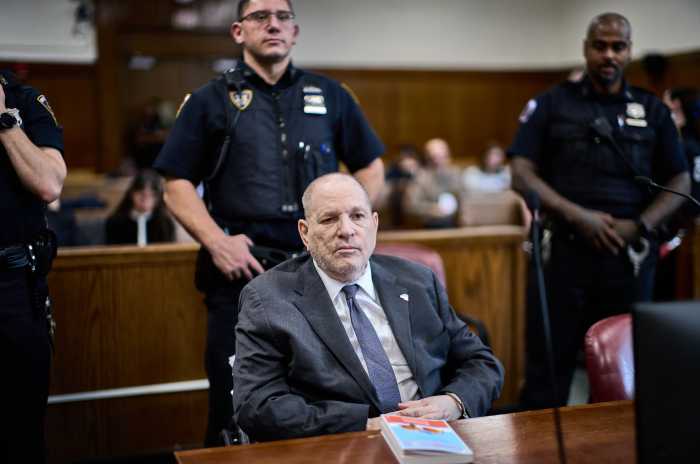City transit honchos debuted their newest busway project on Jay Street on Monday, clearing the usually-busy thoroughfare of car traffic in favor of bikes and public transportation.
“I was expecting it to be a lot busier and coming down [Jay Street] was actually the easiest part of ride over here,” said Lauren Lowe as she unlocked her bicycle at MetroTech around 1 pm. “There are definitely less cars.”
The Department of Transportation closed off 0.4 miles of the roadway between Livingston and Tillary streets to through-traffic for cars starting Aug. 31 between 7 am and 7 pm on weekdays, in order to speed up travel times for buses, trucks, drop-offs, and cyclists.
Local access for cars is still available on the roadway via Willoughby Street and the MetroTech Roadway underpass coming from the east, and a reconfigured Johnson Street from the west.
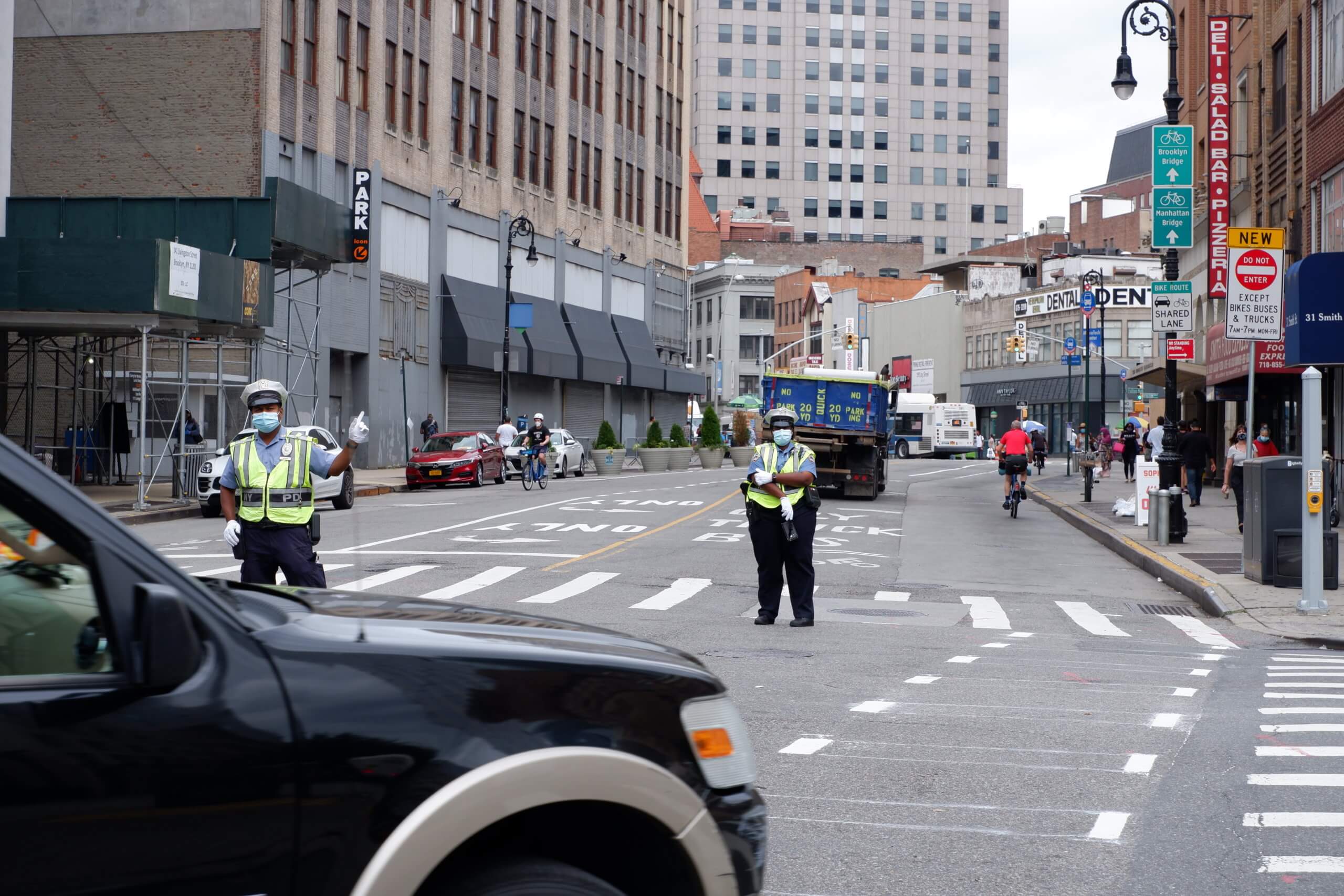
The busway, which was planned as a one-year pilot, follows the widely-praised project on Manhattan’s 14th Street last year, and lives just blocks from Brooklyn’s original busway on the Fulton Mall, which dates back to the 1980s.
The transit agency hasn’t yet painted the road in the busway’s signature red color, but new signs indicate that there is no entry for through-traffic while two traffic agents with the Police Department were stationed diverting cars at either end of the five-block stretch.
Cops also conducted a sweep of ticketing for cars that were illegally parked and were telling idling drivers in the bus stop at MetroTech to move away.
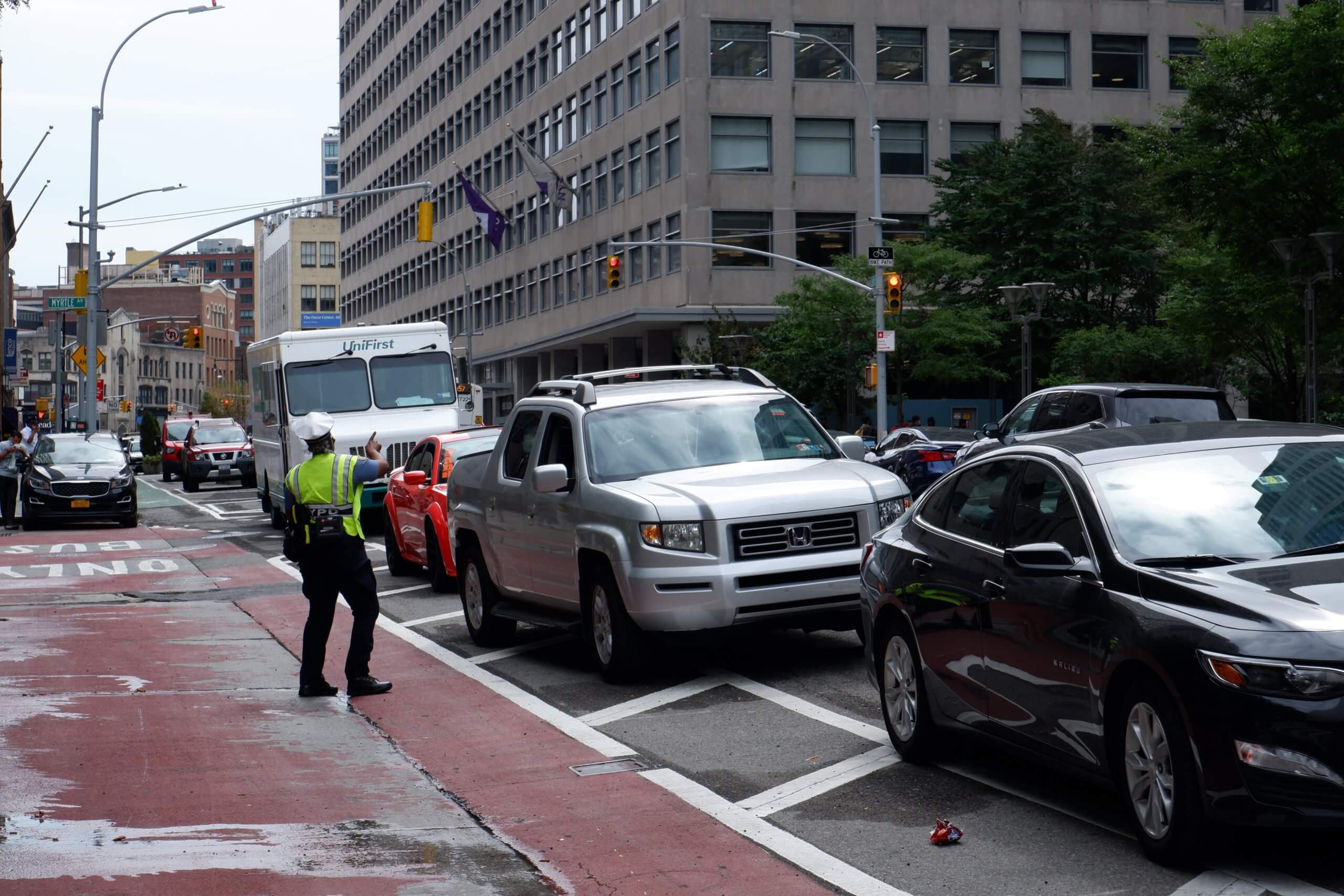
One Uber driver said he liked the busway, because it made it easier for buses to zip through the downtown strip.
“It’s a good idea because it gives more space for buses,” said Frederico Hereras.
After the ticketing blitz was over, some idling motorists still blocked bike lanes and some vehicle lanes, especially between Johnson and Tillary streets, forcing bikers to swerve into traffic.
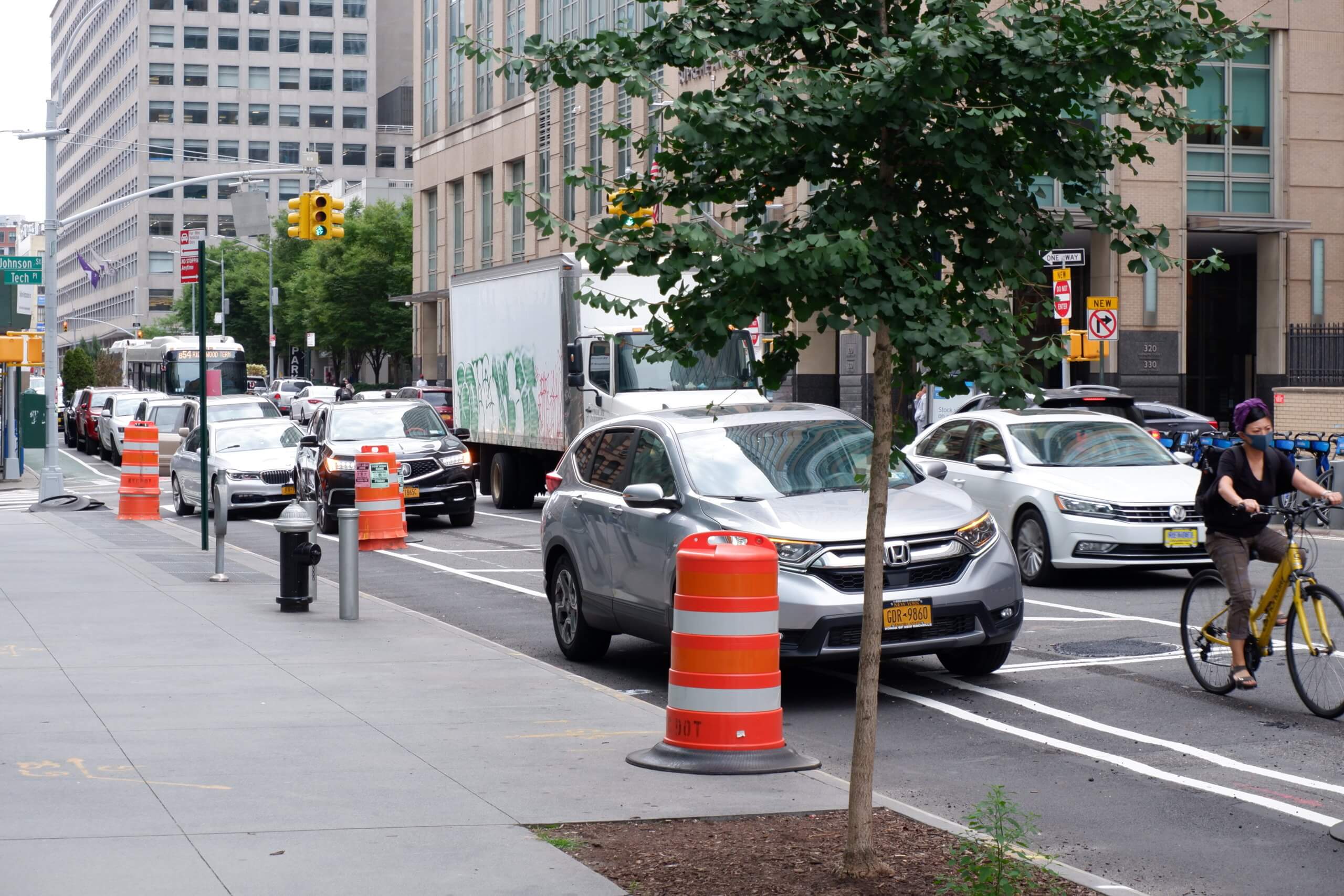
One commuter worried that the restrictions will make it difficult for those getting to the central business district by car, especially seniors accessing retirement services or running errands.
“It’s going to be hard, a lot of people come down here [by car] to the bank and for retirement services,” said Jay Jackson. “It’s going to be bad for them.”
The Jay Street busway is the first of five which Mayor Bill de Blasio announced back in June, with two in Queens and Manhattan held up after local businesses pushed back against the city’s proposals.
DOT Commissioner Polly Trottenberg said that the project in America’s Downtown was the easiest to get through with little resistance from local leaders.
“We were laughing that we’ve never had a bus project that was liked as much as this one,” said Department of Transportation Commissioner Polly Trottenberg at an Aug. 27 press conference at the downtown thoroughfare across the street from MetroTech. “Compared to some of the other projects, they’re going to take a little longer, we’re going to work through some more contentious politics.”
The agency has also flipped Johnson Street which now goes eastbound, and plans to add a two-way bike lane connecting Jay Street to Adams Street and the Brooklyn Bridge.
Meanwhile a small drone hovered above Johnson and Jay streets Monday afternoon, seemingly observing new traffic patterns, but DOT spokesman Brian Zumhagen said the flying robot was not theirs.
Down at the fresh Jay St busway today and there’s a drone hovering above Johnson Street, is that you @NYC_DOT ? pic.twitter.com/lrJGq9hnWO
— Kevin Duggan (@kduggan16) August 31, 2020
The rep added that the agency was delighted to open the new busway for tens of thousands of bus commuters, and that transportation officials will put down the new markings in the coming days.
“We’re thrilled about the opening of the Jay Street busway, which will give more than 45,000 daily bus riders on seven routes faster and more reliable commutes, transforming a corridor that for too long has long been a bottleneck for buses,” said Zumhagen in a statement. “For the first day, it was very successful, and NYPD has been invaluable in directing traffic to help everyone get used to the new regulations.”


